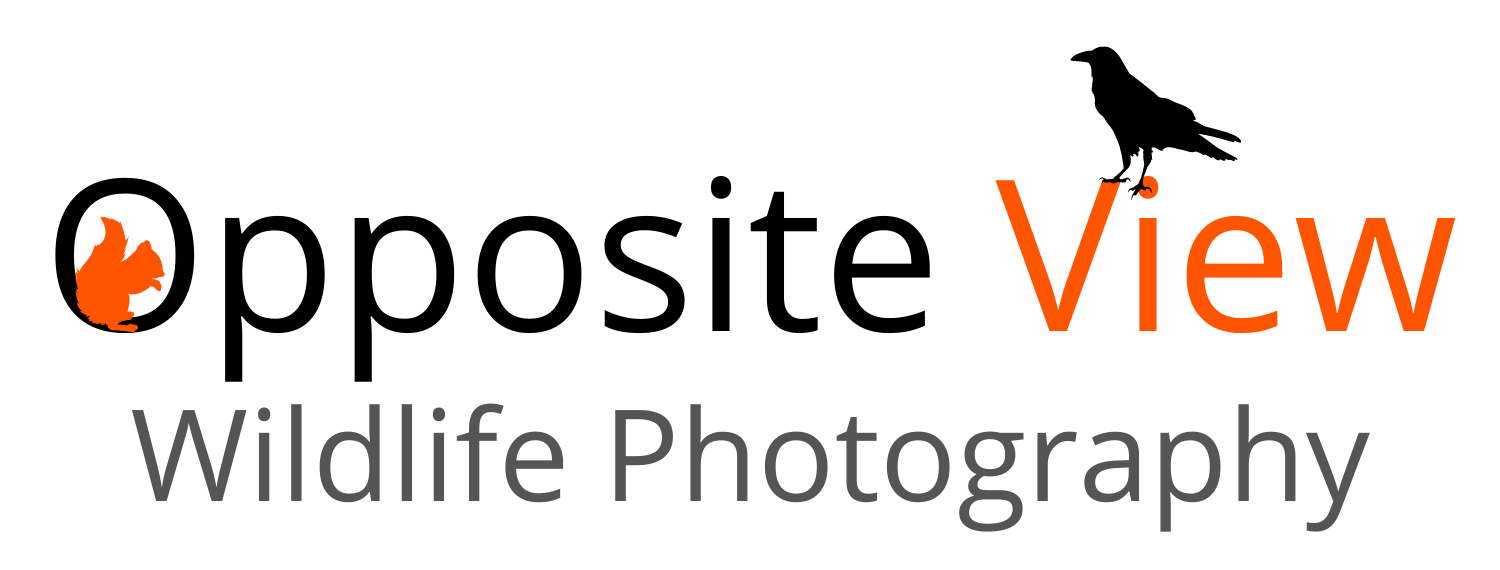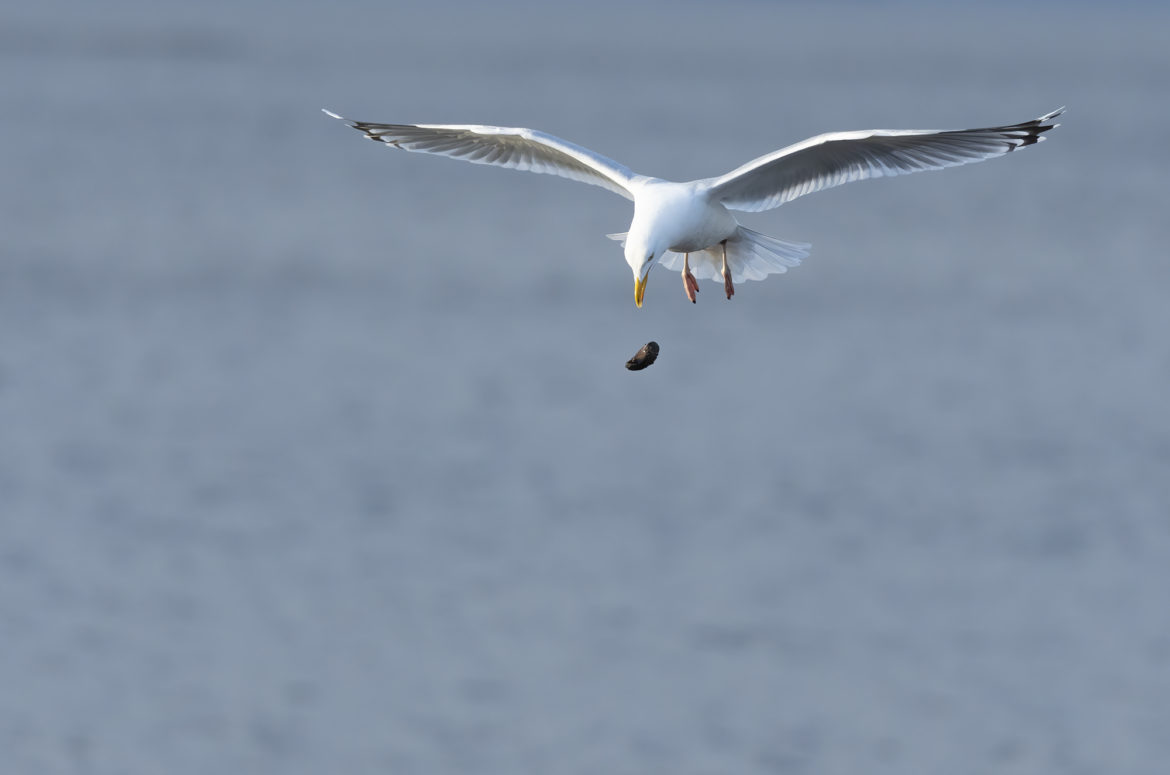It’s that time of year again. Sadly, I don’t mean spring and strolling through sunny days with birdsong ringing in my ears and the signs of new life all around me. No, I am talking about the proliferation of news articles about “nuisance gulls”. You know the kind of thing you inevitably end up reading about; attacks on children, flying off with dogs, rampaging through cities, stealing cars, drinking on street corners. Ok, maybe not the last two quite so much, but I find the level of vitriol directed at some of our most intelligent and resourceful species is disgustingly over the top. The desperate cries for a gull cull usually start around now – as the weather warms up and herring and lesser black-backed gulls begin to reappear on rooftops – and only stop when the breeding season is forgotten and humans are tucked up inside against the winter chill.
The return of the breeding gulls is something I long for and dread in equal measure. I am grateful for any opportunity to watch the diligent parents at work but am constantly on edge waiting for some human-gull conflict to arise on our street.
But it is not just the breeding birds that seem to get the Daily Mail readership riled. Any form of gull interaction that could be constituted as bad behaviour in the eyes of the humans involved, inevitably receives a horrendous amount of bad press. I often wonder if I would be subjected to as much abuse if I walked up to someone and stole their chips.
It is food that seems to cause much of the friction. We seem happy to be wasteful, while not disposing of our rubbish correctly, and have our wildlife come and remove our waste. But only as long as the species in question doesn’t make noise or mess. And it most certainly must not have the audacity to take that item from us before we bother to drop it on the floor.
But not all gulls are convicted chip thieves. Research has found that some gull colonies prefer foraging for more natural food than feeding on our waste. The British Trust for Ornithology (BTO) found that gulls in a coastal colony at South Walney, which is in decline, were choosing to feed on mussel beds rather than eating food from urban areas or landfill sites. The research proves that the notion that gulls with access to human food will always default to scavenging from us is false. It also demonstrates the need for shellfisheries to be managed for the gull population in addition to humans.
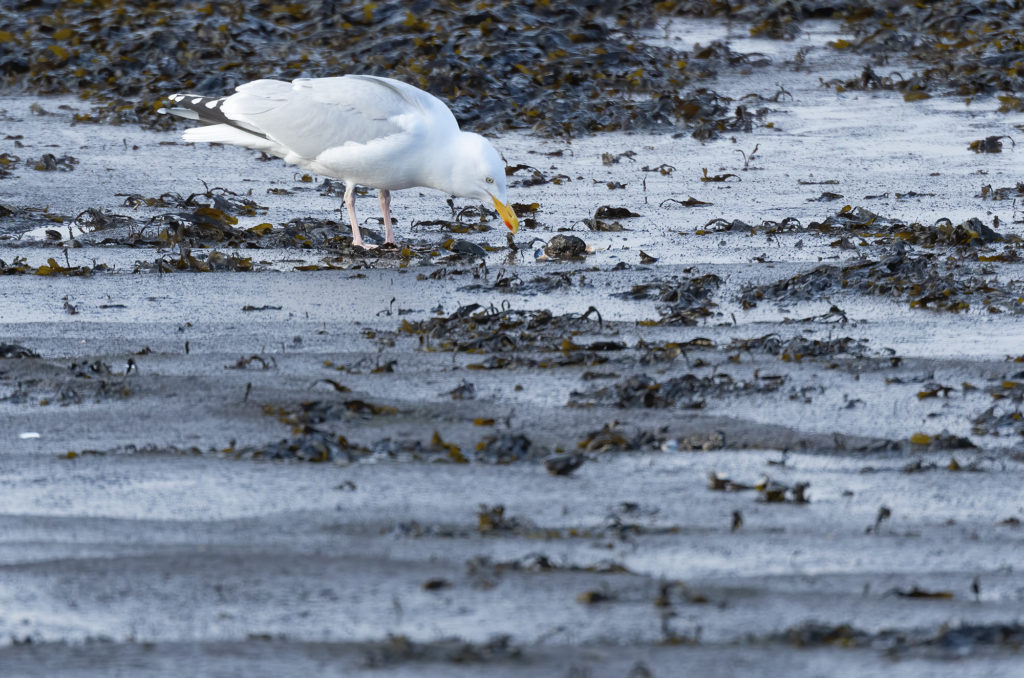
Managing the marine environment for gulls is even more vital when you consider that the European herring gull population is in freefall. This drop is due to the UK’s breeding population being in long-term decline and a recent severe decline in the winter population, which means the herring gull continues to have Red listed conservation status in this country. Although some feel that these birds are everywhere they look, this is only due to the fact that a greater proportion of these gulls have formed their nesting colonies in urban areas.
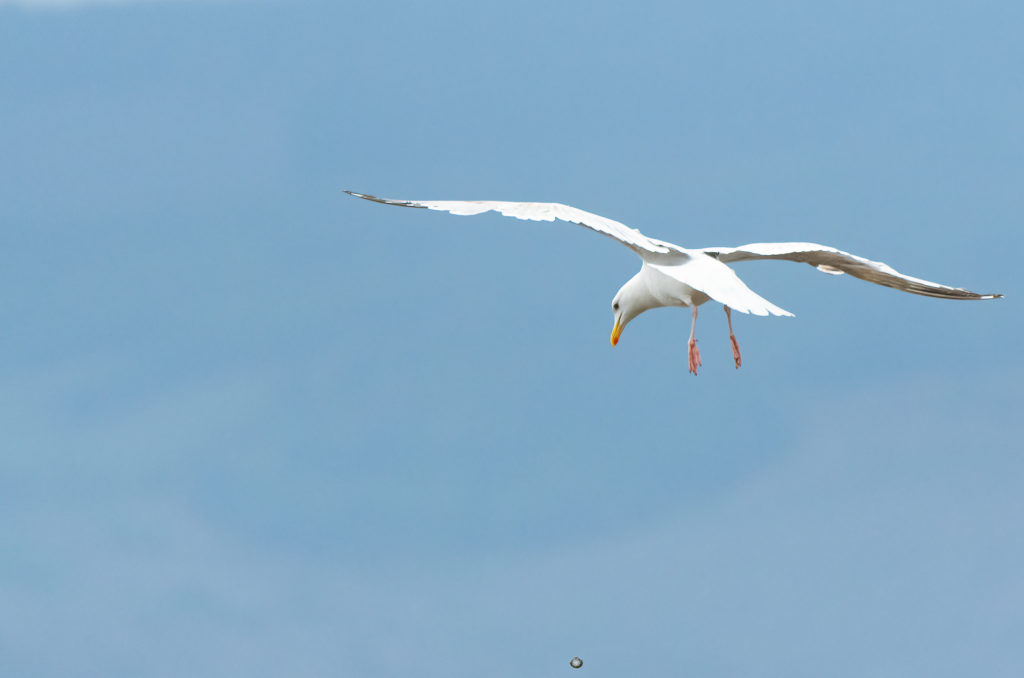
NatureScot gull specialist Dr Andrew Douse also noted on BBC Scotland’s Good Morning Scotland programme, that changes to the marine food supply were a significant factor in their decline.
“They used to get a lot of food from discards from in-shore fishing boats and changes in the fishing industry has led to fewer discards,” he said.
“In parts of Scotland mink are a particular problem because they are good at swimming and can get onto offshore islands where there are breeding colonies.
“Disease may be a problem as well.”
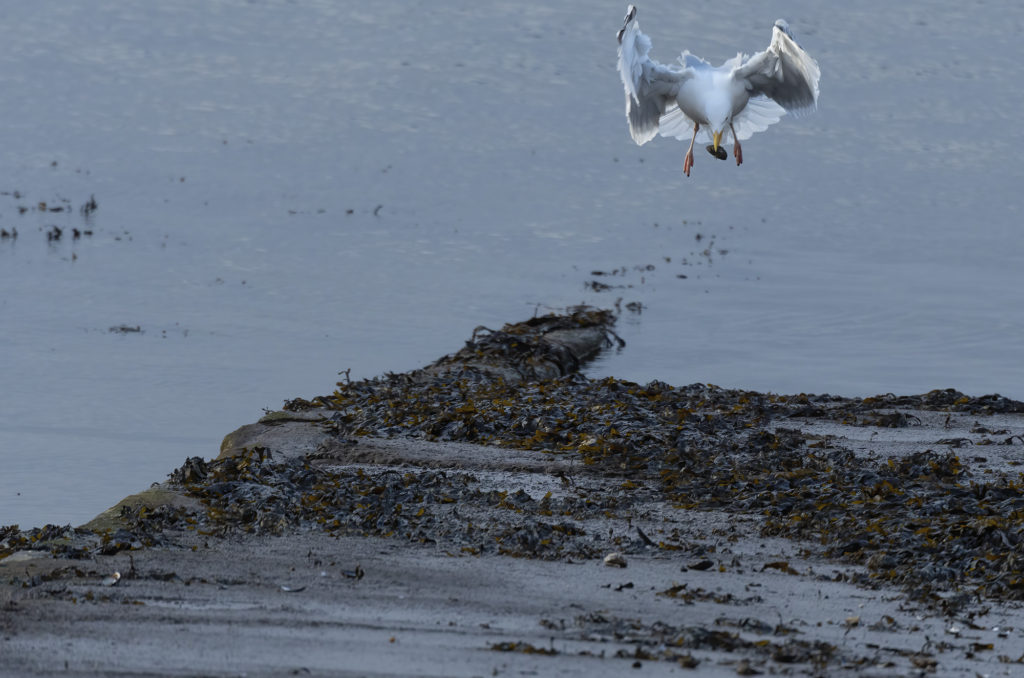
Having spent so much time monitoring the feeding behaviour of the local urban gulls, I was grateful for the opportunity to watch the herring gulls having a more natural diet near Newark Castle in February. One would pick up a mussel, fly up and drop it on the concrete slipway next to the pier to break it open.
While one gull had some success breaking open the mussel shells using the long-drop technique, the individual in the image below was pretty rubbish at that method. To solve the problem, it decided to fly off with a mussel to the pier to work on it away from the other herring gulls, reducing the risk of theft.
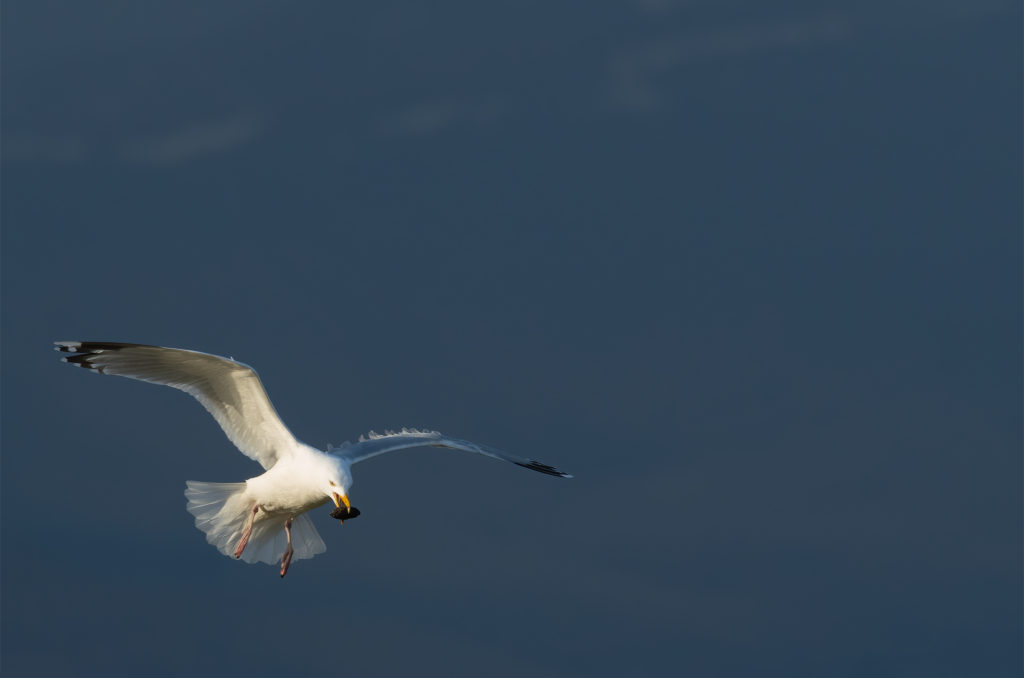
While we humans take extreme offence if a gull swoops down for our ice cream cone as we stroll along the promenade, this is normal behaviour for them. Kleptoparasitism – the scientific name for the exploitative process of food stealing – is an established part of gull society. Various species of gulls regularly use this tactic to get the food they need to survive while expending less energy. Any reduction in wasted energy foraging is obviously a benefit to the gull. This potential benefit is why frantic chases, accompanied by much screeching, are often the result when one gull grabs a tasty morsel. It is the instinct of the other gulls to force the current owner to drop its prize, if they calculate this approach will be easier than finding their own meal.
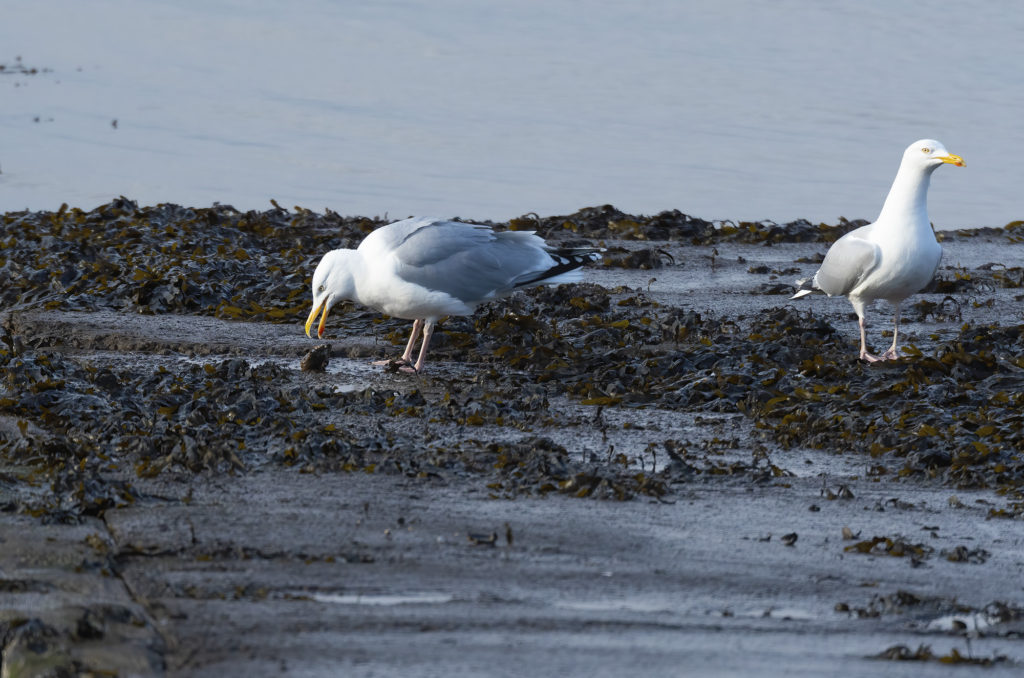
I wonder if this instinct caused some interesting behaviour that I witnessed at Ayr beach back in January (shown below). One herring gull caught my attention, carrying what looked like a stick in its beak. I wasn’t the only one watching. Other herring gulls would regularly swoop in to try and steal the precious cargo from the bird. It may be normal behaviour to steal food from each other, but I still can’t work out what was so special about that stick unless it was something edible. Interest in other objects when searching for a meal can also land gulls in trouble, causing them to come into contact with our rubbish, which they can eat by accident or become tangled in.
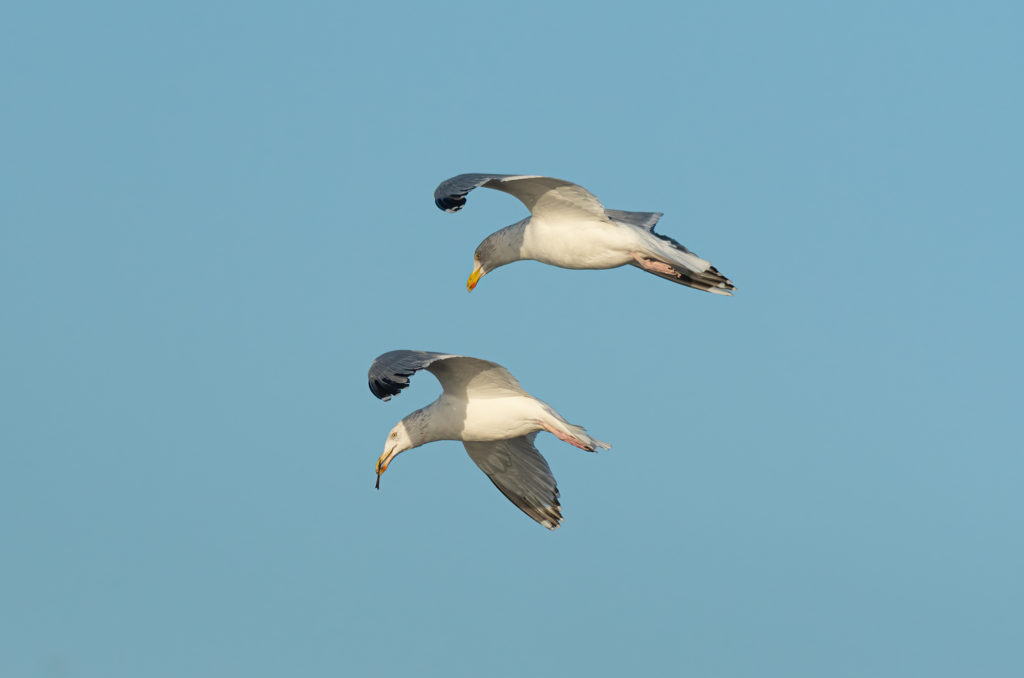
The next time you find yourself warily watching the skies remember that, with a lot less waste and better management of our coastal waters, the gulls could go back to feeding from the sea, and you could return your attention to your chips.
